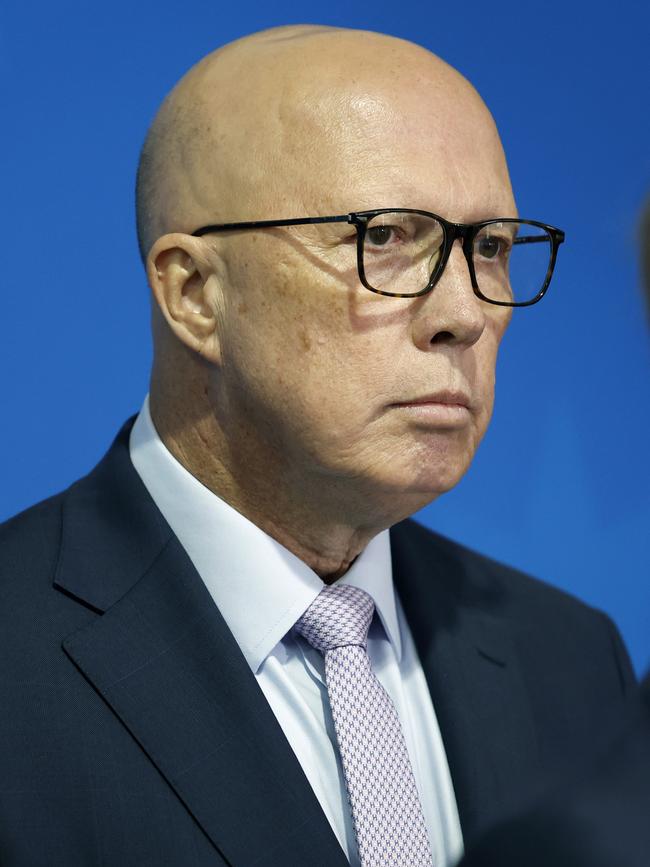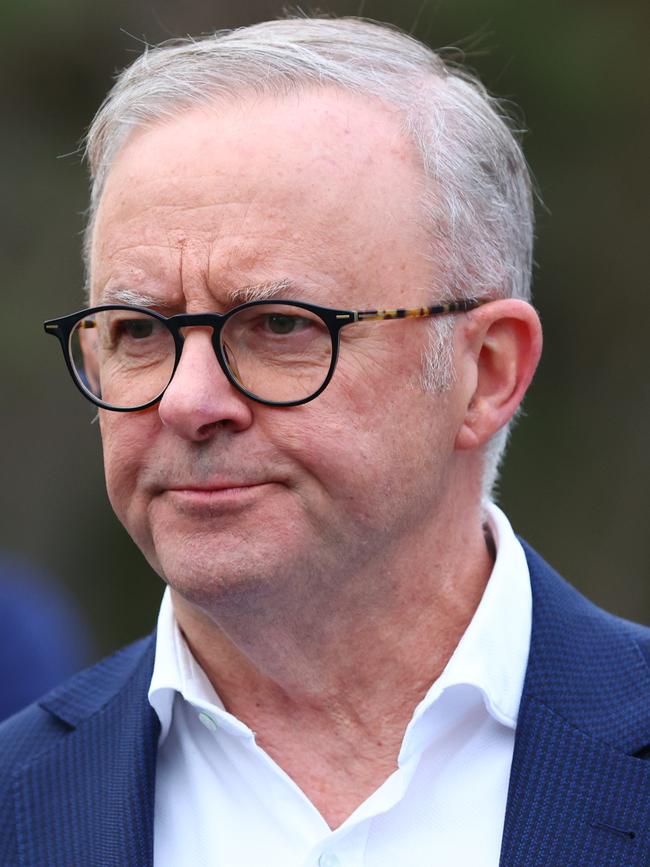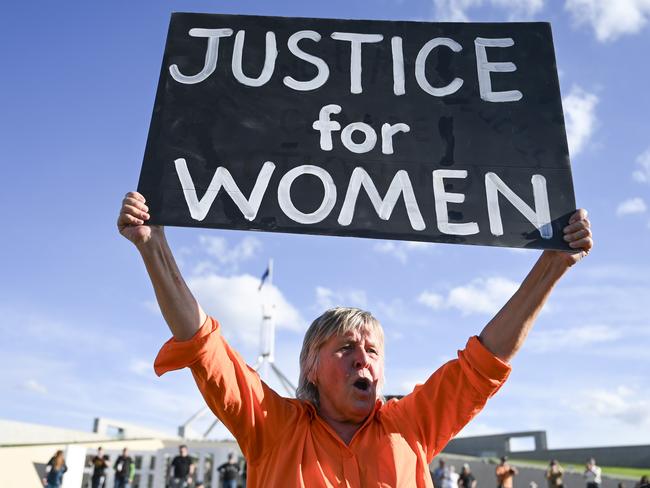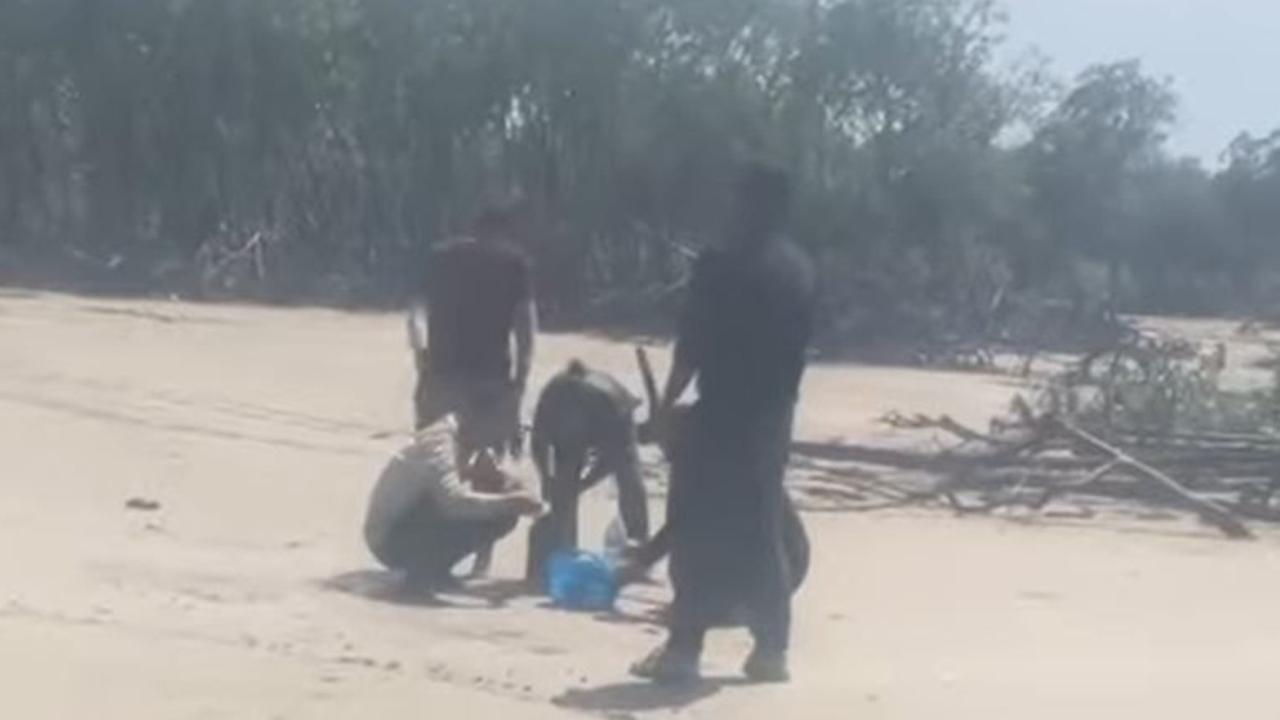‘Deafening’: Billion-dollar ‘national emergency’ barely worth a mention in election campaign
It’s an “emergency” that costs Australia an estimated $26 billion a year and rising. You wouldn’t know it listening to Anthony Albanese or Peter Dutton.

Federal Election
Don't miss out on the headlines from Federal Election. Followed categories will be added to My News.
It’s the critical issue that costs Australia an estimated $26 billion a year and rising — and one that, if you’ve been listening to Anthony Albanese and Peter Dutton for the past four of this five-week federal election campaign, has barely crossed the lips of either leader.
Already in 2025, an estimated 23 Australian women have lost their lives — the majority allegedly as a result of male violence — according to award-winning journalist and Australian Femicide Watch founder, Sherele Moody. Seven of those have occurred within the last week.
“Each of them was a statistic. Each should still be alive,” National Women’s Safety Alliance director, Katherine Berney, wrote in Women’s Agenda this week.
“Yet not one question about gender-based violence was raised in the first two leaders’ debates … The message from our political class is deafening – tax cuts, defence, and housing are national priorities. But women’s lives? Not even worth a mention.
“This silence isn’t just disappointing, it’s dangerous.”

Last year was the worst 12 months on record for men’s violence against women in Australia since 2016. That approximately one woman was (allegedly) killed every four days by a current or former partner threw into sharp relief the effectiveness of the response systems – including police and courts – meant to keep them safe, and the dire lack of funding appointed to critical specialist domestic, family and sexual violence response services.
Yet the federal budget in March hardly touched the sides of the level of investment needed to meet demand for frontline services, “let alone allow services to expand and improve their capacity”, Monash University’s Dr Kate Fitz-Gibbon told news.com.au at the time.
Rendering men’s violence against women, once again, little more than a political afterthought.
Perhaps what best summarises the terrible imbalance of justice when it comes to crimes men perpetrate on women is authorities’ response to it versus their swift action in 2014 – when they shut down the night-life of an entire city within months of two young men being murdered in one-punch attacks.
The stark comparison has been made time and again as gendered violence in Australia morphed from crisis to epidemic, most recently by founder and CEO of the Asylum Seeker Resource Centre (ASRC), Kon Karapanagiotidis.
“Seven women have been killed in the past seven days. Not a word from Albanese or Dutton. Not a word,” he wrote in an Instagram post on Wednesday that’s since gone viral.
“If seven men had been killed by one punch attacks in the last seven days we would have curfews, emergency task forces and billion dollar commitments to stop it. Women get nothing.
“We have a national emergency of male violence against women and no political leadership.
“Both care more about not upsetting male voters by naming this crisis than they do about protecting the human rights of women to live free of the threat of male violence.
“Both have failed women. Send a message with your vote this election.”

It has taken both leaders until this week – early voting already open and within spitting distance of election day – to release their party’s respective “commitments” to overcoming the violence that continues to rob women and children of their lives.
On Thursday, Mr Dutton announced the Coalition’s 14-point plan, which includes expanding the Safe Places Emergency Accommodation Program and the Leaving Violence Program (which provides one-off funding to help cover the cost of leaving an abusive relationship).
As part of the $90 million package, it would also criminalise the use of mobile phones by perpetrators to threaten and track partners, and increase crisis helpline support to ensure victim-survivors “have their calls answered and get the immediate assistance they require”.
“As a former police officer who attended numerous domestic violence call-outs, I know the lifelong impact of these horrific crimes,” the Opposition Leader said.
“A government I lead will be focused on delivering real change so that families, women and children are safer and we end family and domestic violence.”


If elected again on May 3, the Prime Minister vowed to go further in addressing what he last year labelled a national crisis, with a raft of “innovative” measures to target offenders, including spending $8.6 million for ankle bracelets on those who pose the greatest risk and early intervention programs.
Labor’s announcement also focused heavily on “fast growing and insidious” financial abuse.
Katy Gallagher, Minister for both Women and Finance, unveiled the plan on Tuesday, telling reporters her party will “take action to legislate changes in the superannuation, tax and social security systems so they cannot be weaponised by perpetrators”.
Can either party really call it a “commitment”, though, if it’s taken you four weeks of a campaign to address? It seems much more akin to an afterthought.

Neither’s plan, Monash’s Dr Fitz-Gibbon and Australian National University Research Fellow Dr Hayley Boxall pointed out in a piece for The Conversation, “represent a commitment to ending gender-based violence”.
“They both propose a patchwork of largely reactive initiatives. These will fail to deliver holistic reform to prevent violence and to intervene early enough to meaningfully reduce it,” they wrote.
Neither party proposes any intended action against sexual violence, implementing housing or recovery support beyond emergency accommodation and age-appropriate crisis responses for children, or the need to effectively engage men and boys.
“Finally, there is no discussion of the need for greater monitoring and evaluation efforts. We cannot fix what we do not measure,” Dr’s Fitz-Gibbon and Boxall wrote.
While both Labor the and Coalition promised in their announcements to build on the National Plan – which aspires to eliminate to eliminate gender-based violence in one generation – three years into its delivery, “the persistent prevalence of this violence shows we must do more”.
“We need visible, bipartisan leadership that treats this issue with the same gravity we afford to other national emergencies.”
Originally published as ‘Deafening’: Billion-dollar ‘national emergency’ barely worth a mention in election campaign





